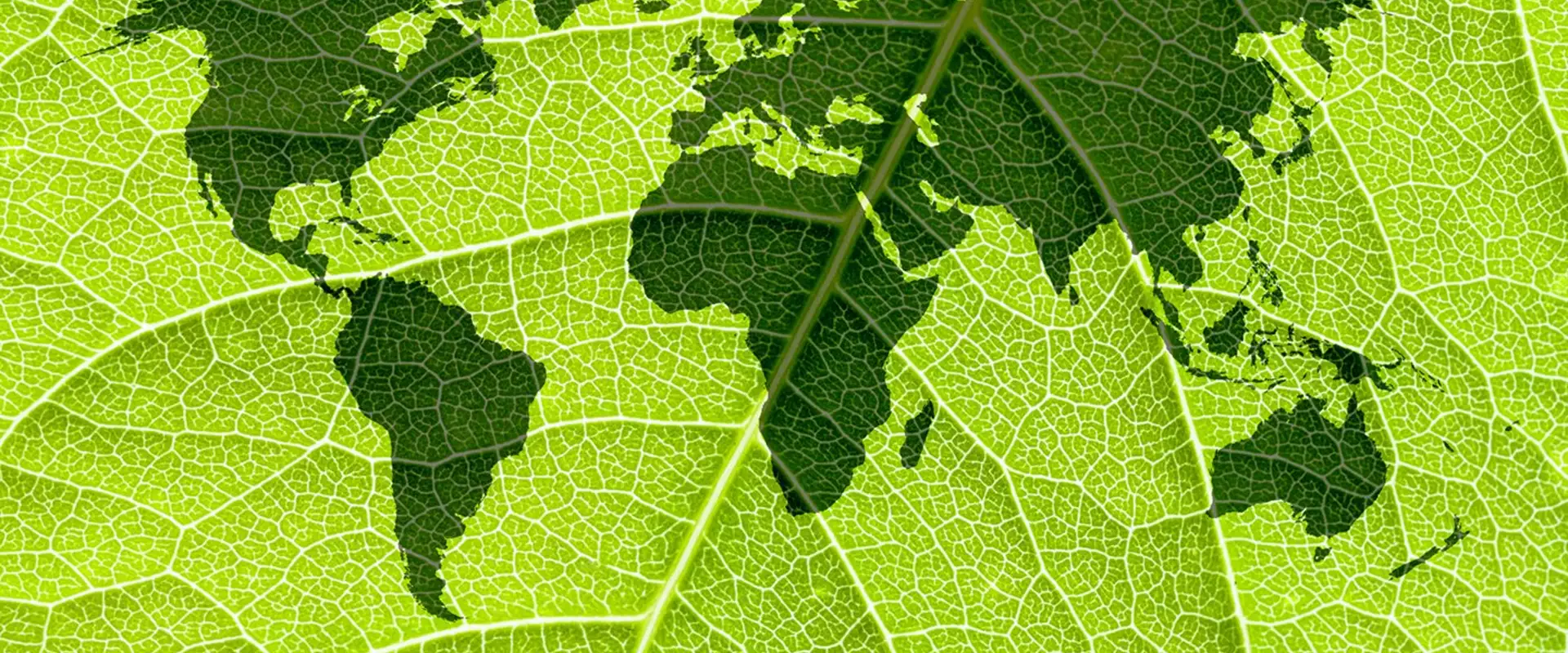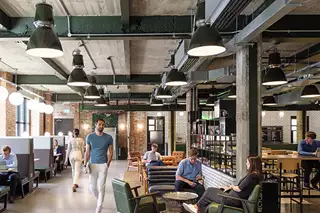
BYBI Susty Summit: What does the New Year hold for sustainability?
We joined BYBI (which stands for By Beauty Insiders) at their sustainability summit as they picked the brains of environmental experts Hannah Pathak, Director of Forum for the Future, and Emily Sharples from South Pole. Here’s what they had to say.
In 2017, Dominika Minarovic and Elsie Rutterford, came together to set up their own sustainable clean beauty venture BYBI, based at Workspace’s The Record Hall in Baldwin’s Gardens, Holborn.
Ever since, they have been pushing to increase the dialogue surrounding sustainability in business, a value firmly embedded into their company ethos. For this reason, they brought together an expert panel for their BYBI Susty Summit last month to discuss some of the main themes in the world of sustainability and the trends that are being faced by businesses worldwide today.
The experts picked out these as hot topics for 2020.
A World in Flux
Here in the UK, we can often feel a little far removed from the challenges posed by migration, the climate crisis, and the myriad effects that climate change is having on the world right now. We see it in social activism, but actually many other parts of the world have been feeling the effects of the climate crisis for a long time already – and those voices are getting louder.
“We are starting to see concerns bubbling up into the mainstream of people’s awareness of just how bleak it is, and just how urgent it is,” says Hannah Pathak, Director of Forum for the Future, a non-profit organisation that works in partnership with business government and civil society to accelerate the shift towards a sustainable future.
“We are also seeing the rise of nationalism. We see it cropping up across the world – the Amazon, the Philippines, the US – and not just in small pockets. As we embark on a new decade (irrespective of your politics) some international structures and international collaboration coordination is going to be harder to achieve,” says Hannah.
In addition to this, we all live in an online world that’s becoming progressively more technological. This is changing the way that we interact with the world, the way we interact with other humans, and the way we interact with buying things, Hannah explains.
Battling Plastics
The reduction of single-use plastics is a huge trend that has risen on the public agenda in the last couple of years in the UK. “There has been a real shift in consumers’ relationships towards plastic,” says Hannah, and companies are adapting to meet changing demand.
“Waitrose has trialled going plastic-free in terms of packaging, and we’ve seen the #OneLess campaign here in London where people have been encouraged to use reusable water bottles.” People carrying resusable water bottles has become normal, signalling a big shift in behaviour.
Changing Consumer Patterns
“There is no doubt that our attitudes as consumers are shifting. Sustainability is now on our radar,” says Elsie. “It feels like a movement that is really resonating now. Around 70% of consumers are starting to think about their purchases in the context of sustainability.”
This is changing the way businesses work, with many tapping into this shift in consumption patterns. “We’re seeing it certainly in the clothing market,” says Hannah. Here, companies are harnessing the positive, peer-to-peer mechanics of the sharing economy. For example, H&M have launched the first clothing rental service in which members of their loyalty programme will be able to rent selected party dresses and skirts from its 2012-2019 Conscious Exclusives collection. “This is really interesting in terms of how consumers might purchase in the future,” says Hannah.
Looking to the beauty industry, BYBI aims to be sustainable through carbon offsetting and supply chain initiatives covering all aspects of the product journey from idea to shelf: the procurement of raw materials, the manufacturing, and the distribution.
“We have an internal grading system called the “Susty Score” which customers will soon be able to see on each BYBI product,” says Dominika. “It will give an indication of its environmental implications – not only from a raw material perspective, but how it was manufactured, by whom, and what the packaging is made up of. We really want to communicate the work that we’re doing internally to our consumers in an impactful and meaningful way.”

The Benefits of Carbon Offsetting
Carbon offsetting is used for unavoidable emissions that can’t be reduced through energy reduction alone. When you reduce a tonne of carbon dioxide or CO2, that creates one carbon credit. This is essentially a tradable certificate representing the right to emit one tonne of carbon dioxide or the equivalent of different greenhouse gasses, as you have already taken this amount out of the atmosphere.
“What it means is that we can take immediate action now as part of a bigger thing,” says Emily Sharples, Communications Assistant at South Pole, a leading provider of global sustainability and financing solutions and services.
Elsie agrees: “Carbon offsetting is really useful for us as a business as we continue to scale our sustainability message, it’s something that we think about a lot. Our goal is to be the world’s leading sustainable beauty brand and in order to do that, we have to scale-up.”
“As business partners, that often requires us to be in different parts of the world and it’s something that we really grapple with, really understanding whether we should be jumping on that plane. So, we use carbon offsetting a lot because we believe going about things in that way is worth it to spread the word globally and to be knocking less sustainable brands off the shelves of some of the bigger global retailers. Carbon offsetting is really important in terms of sustainability at BYBI and what we do.”
“We should all feel empowered that we can do something to avoid the climate crisis. We’re not just one person and there is a bigger community,” says Emily. Indeed, it takes momentum to build success, but the more you roll it in the right direction, the bigger it gets.
Do you want to attend the next BYBI Susty Summit? Keep an eye out for the next event here.
Find out how Workspace is doing the right thing by supporting education, employment and local economies in and around London while continuously striving to enhance its environmental performance.

